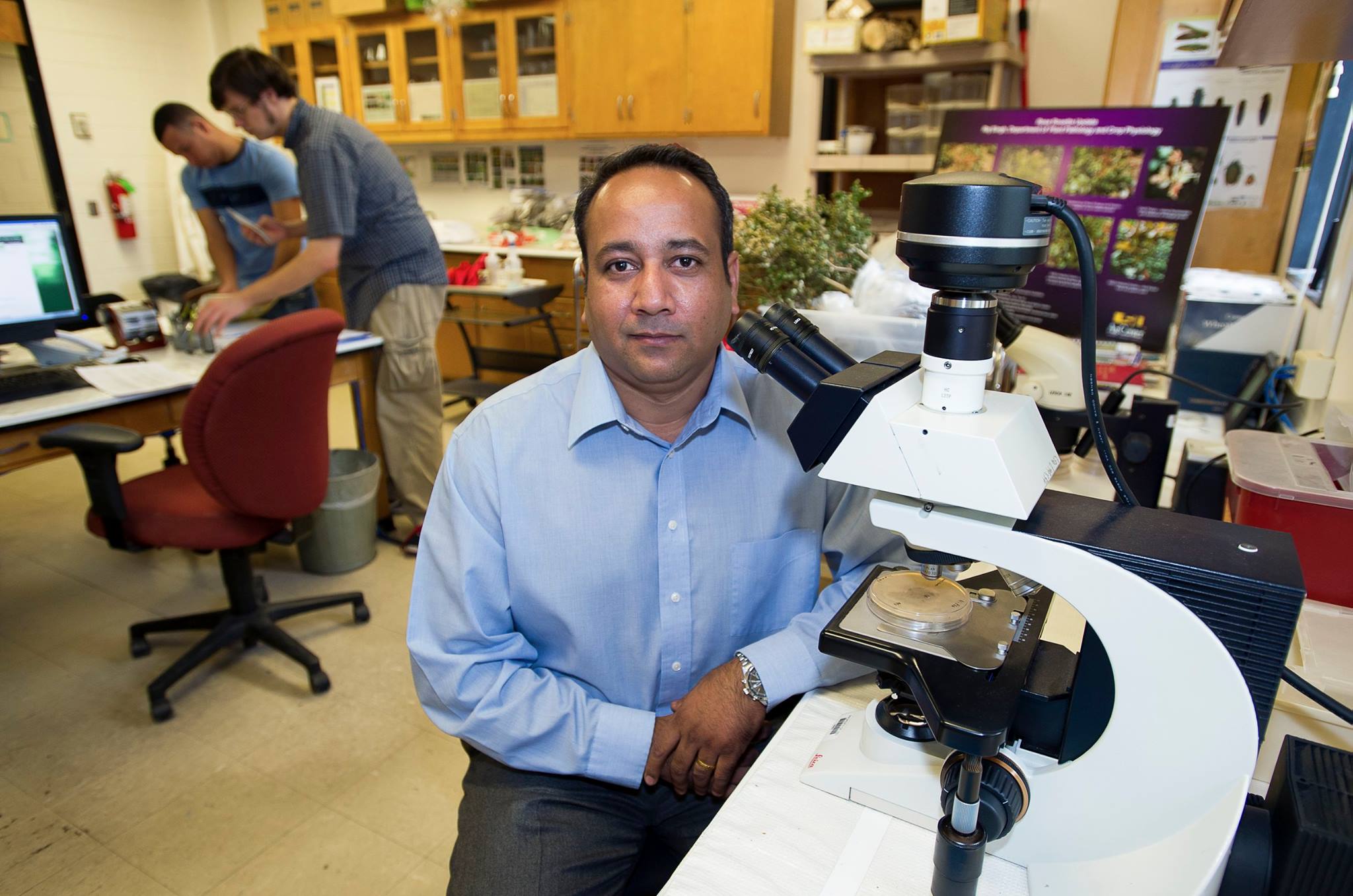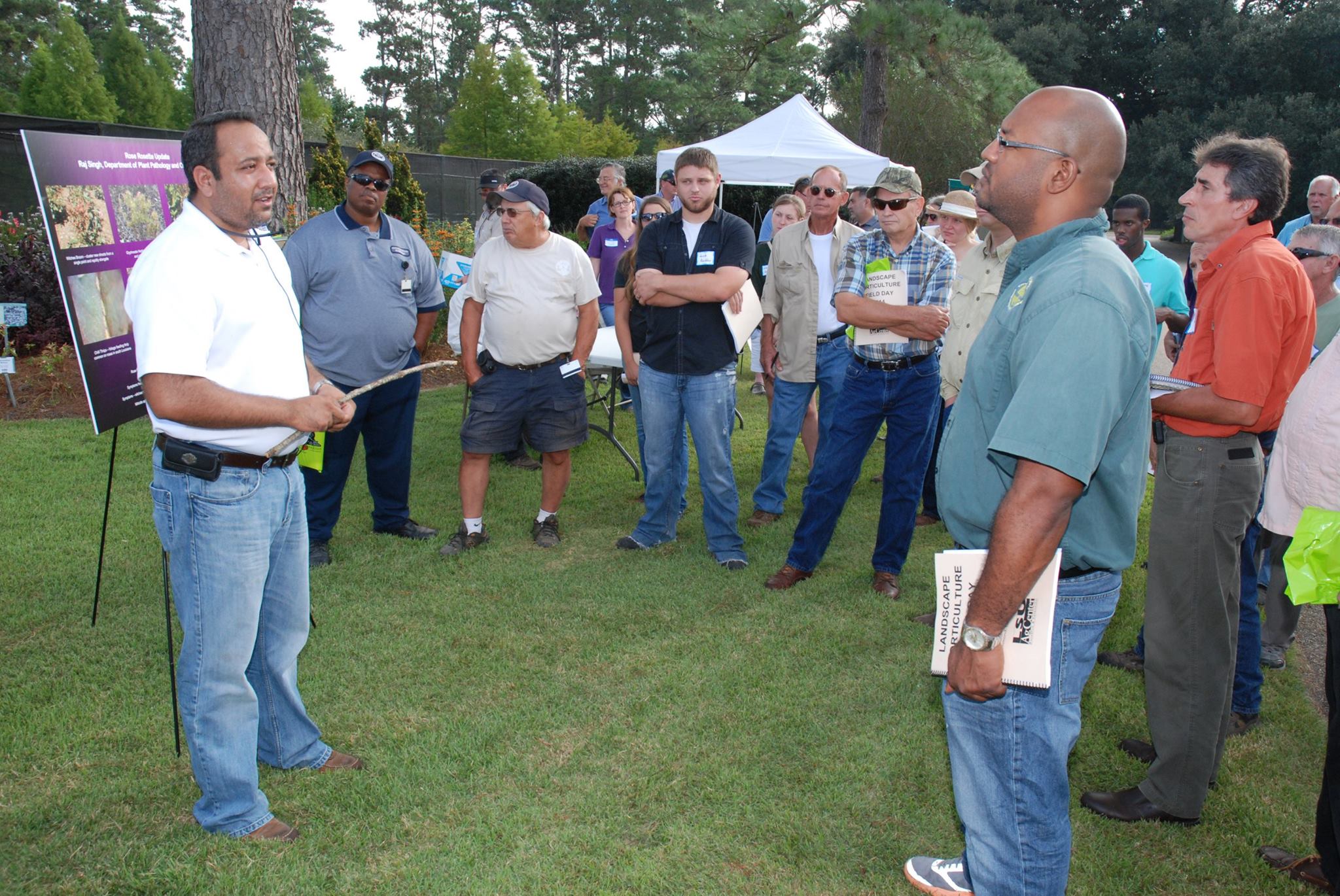Time in that position: 3 Years
Distribution of efforts: 100% Extension
Degree held, thesis/dissertation topic: Doctor of Plant Medicine; MS in crop protection, BS in plant protection
Current commodity assignment: Statewide plant diagnostic program for ornamentals, vegetables, fruits, agronomic crops, trees and turfgrass; trainings and educational programs for horticultural commodities. 
Typical workload in spring:
Workload in spring is very weather dependent. We start getting samples as early as first week of January and on an average we receive 30-40 physical samples and 50-60 digital samples per month in spring. I also provide free plant clinics at several garden shows, 3 to 4 guest lectures related to plant pathology in the department during spring, and attend 3 to 4 commodity meetings.
Typical workload in summer:
Summer is our peak period. On an average, we receive 60-80 physical samples and 50 to 60 digital samples per month during summer. This is the time when the Master Gardener training sessions are also at peak; I do 10 to 12 training sessions each 3 to 4 hours long on plant pathology and plant diagnostics. I also participate in 3 to 4 field days. In addition, I also participate in three pesticide recertification programs in different parts of the state. Summer is also busy for home visits. I also mentor students during a 15-week internship on plant health diagnostics during summer.
Typical workload in fall:
Fall and winter is also busy for us due to longer growing seasons and mild winters. Sample load is similar to summer for both physical and digital samples per month. Fall includes Master Gardener trainings, pesticide recertification trainings, commodity meetings, and home visits.
Most rewarding thing about working in Extension:
The most rewarding thing about Extension is a feeling of satisfaction. I like to solve problems for our growers, and it gives me a feeling of satisfaction when I am able to help them. Sometimes I will get a thank you note or a message that puts a smile on my face and encourages me to do more. Pathogens and pests do not take time off or go on vacation, and growers need current information about these pesky pests more than ever. I believe that Extension is the only efficient way of delivering timely information to the growers.
Challenges with Extension work: Longer hours and lack of funding and specialists.
What early career professionals need to know:
Extension is not an 8 to 5 job. It requires longer hours and weekends to help your clientele. Starters need to be very patient and good listeners. They need to understand why some clients are restless when they have issues with their livelihood. They trust you, and it becomes critically important for an Extension specialist to provide practical up-to-date information to solve the problem. Do not leave your growers in the middle of an issue, and always follow up on the issue. Do not pretend that an Extension specialist knows about everything on the earth.
Put into context the way Extension is evaluated at your institution:
LSU AgCenter has a very intensive protocol for promotion and tenure. It takes about a year to complete the whole process from application to when you are promoted. The promotion and tenure (P & T) package is reviewed by the department P & T committee, and then by the faculty before it goes out to external reviewers. Then it is reviewed by the faculty again and forwarded to human resources. Extension specialists require peer reviewed publications, Extension publications, other subject matter, and competitive grant funding.
Advice to graduate students and early career professionals who want to pursue a career in Extension:
Careers in Extension come with great responsibilities. It is not a highly paid job, but the rewards are endless. You do not have to sit in your lab all day and work on one pathogen for years. In Extension, every day is a new day, and it comes with surprises. You never get bored, and you get the results most of the time. Most importantly, you get to meet and make new friends every day.
